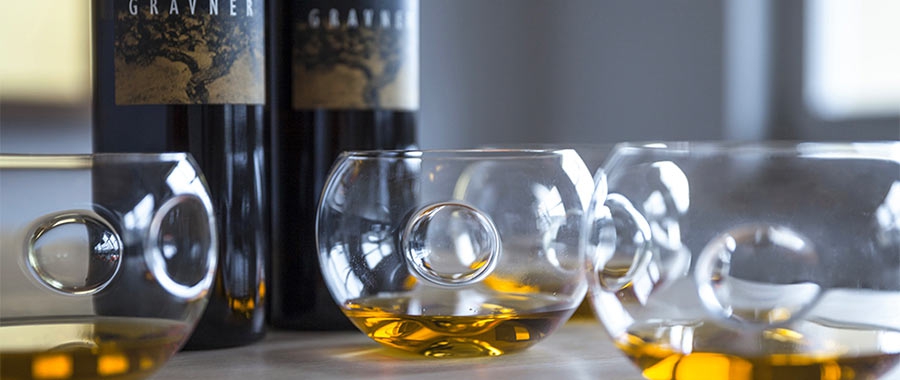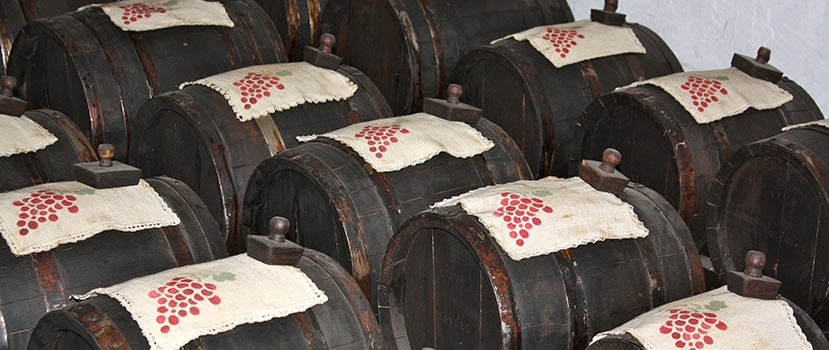BLOG
Judging at the Decanter World Wine Awards 2024
Justin Martindale MW
Tasting & Trends

If there’s one thing in the world I love, it’s judging. From driving, to elite sport, to other people’s parenting, if you’re looking for someone to cast ill-informed opinions out into the wind, I’m your man. So, when the opportunity arose to contribute to what is probably the world’s greatest wine judging competition, I signed myself up quicker than you can say ‘baby-lead weaning’. Thankfully this is one area where I’m at least a little more qualified to apply these skills than the others, as are the rest of the judges who lend their expertise to this fantastic competition.
Over the last 21 years, Decanter World Wine Awards (DWWA) has grown to become the world’s largest and most influential wine competition. The who’s who of the wine world gathered last week in London for the first round of the 2024 contest, where 235 region-specific panels meticulously assessed a staggering 18,000 wines from every region across the globe. I was there for the first three days, tasting flights from USA on day one, then Beaujolais and Southwest France on day two, and finally a day of whites, reds and rosé from Provence. All in all, I think I probably notched up over 250 wines tasted in my three days. Not a bad week at the office.
As a judge, it’s a brilliant opportunity to get a snapshot of where and how particular wine styles are evolving. For example, a flight of traditional method sparkling wines from the USA really stopped me in my tracks because of its consistently superb quality. Equally after tasting 50 or so Provence rosés in a row where the differences were, shall we say, ‘nuanced’, I definitely leave London with a clearer sense of the market direction for that wine style. And for me that’s the absolute joy of competitions like this, you just never know what you’re going to get presented with. We had some amazingly ambitious wines that really pushed the boundaries and massively exceeded expectations, and other weird and wacky blends and styles where I found myself recalling the words of Jeff Goldblum’s Dr. Malcolm in Jurassic Park: ‘Your scientists were so preoccupied with whether they could, they didn't stop to think if they should.’ At least nobody got eaten at DWWA, as far as I know.
So here’s how the process works. At DWWA the watchword is integrity. It’s a huge operation and the most impressively organised logistical exercises I have ever seen in action. The wines are all sent out ‘blind’ to each panel which usually consists of two or three judges, a panel chair and an assistant who pours for us and keeps us on track. The wines are arranged into flights, usually of 10-12 wines and organised in a way that makes sense, so they might be all the same grape variety, style, region or perhaps all three. As a judge you get some basic information about the wines you’re tasting, so for example, you’ll know the grape varieties, alcohol content, sugar content and region of origin, as well as the price band the wine sits in. But DWWA make it impossible for a judge to tell what the specific wine they’re tasting is.
First the wines are individually scored out of 100 by each judge and entered into the DWWA computer system. The panel chair then facilitates a discussion between the whole panel and decides on the final score, whether to award a medal, and if so whether it should be bronze, silver or gold. If there’s a wine that sits just on the cusp, or if the panel chair wants another opinion, then one of the five illustrious co-chairs is on hand to pitch in. It’s a really great process, and definitely the best judging experience I have had at any international competition.
For me, DWWA stands apart here for a couple of reasons. First, it was amazing how consistent the scoring was between panellists in the three days I was judging. On my panels we were almost always all within a couple of points of each other, and that’s really testament to the calibre and experience of the judges here. DWWA are notoriously picky about who they invite to judge, and you have to have some serious credentials and industry expertise to make the cut. So, if you’re making a great wine and you enter it into this competition, you can be confident the judges will spot it.
Secondly, where differences of opinion occurred, which of course they did, particularly for more esoteric styles, the discussions were so respectful and collaborative, that it felt like a really enriching process. Perhaps one panellist scored a wine as a gold, with the others a low silver? No problem, we’ll go back and taste it again and reevaluate if necessary. It’s also a totally safe space to hold one’s hands up and say, ‘I’m sorry I misread that wine, let’s try again,’ because everyone will miss a wine sometimes. I wish all wine competitions were this free from ego, but unfortunately that’s far from the case! And again, that’s testament to the experience and respect amongst the judges.
Thirdly, the beer vouchers. One day of judging = one free beer, courtesy of DWWA. And there is NOTHING that tastes better than an ice-cold pint of generic euro lager after tasting 90 wines in a day…
So thank you for having me DWWA! I’ll be back next year, along with the rest of the WSG contingent from our education programme who add their renowned regional expertise to the competition.
And if you’re interested in learning more about how this competition operates, we will be hosting a free-for-all webinar discussion featuring two panel chairs with our very own Andrew Jefford who is also one of the co-chairs of DWWA. It should be a fascinating bit of behind-the-scenes insight, join our mailing list to receive more information.



